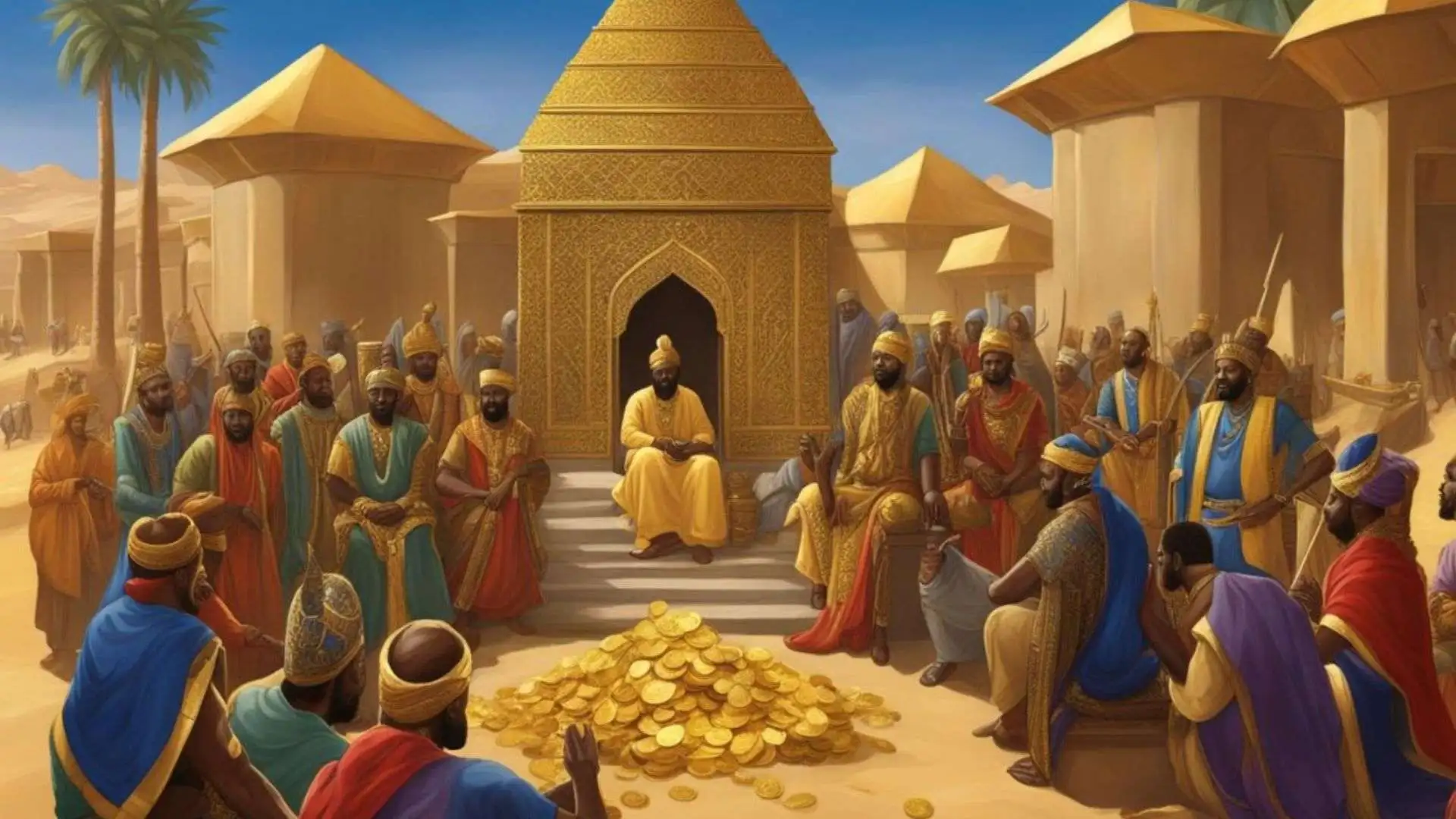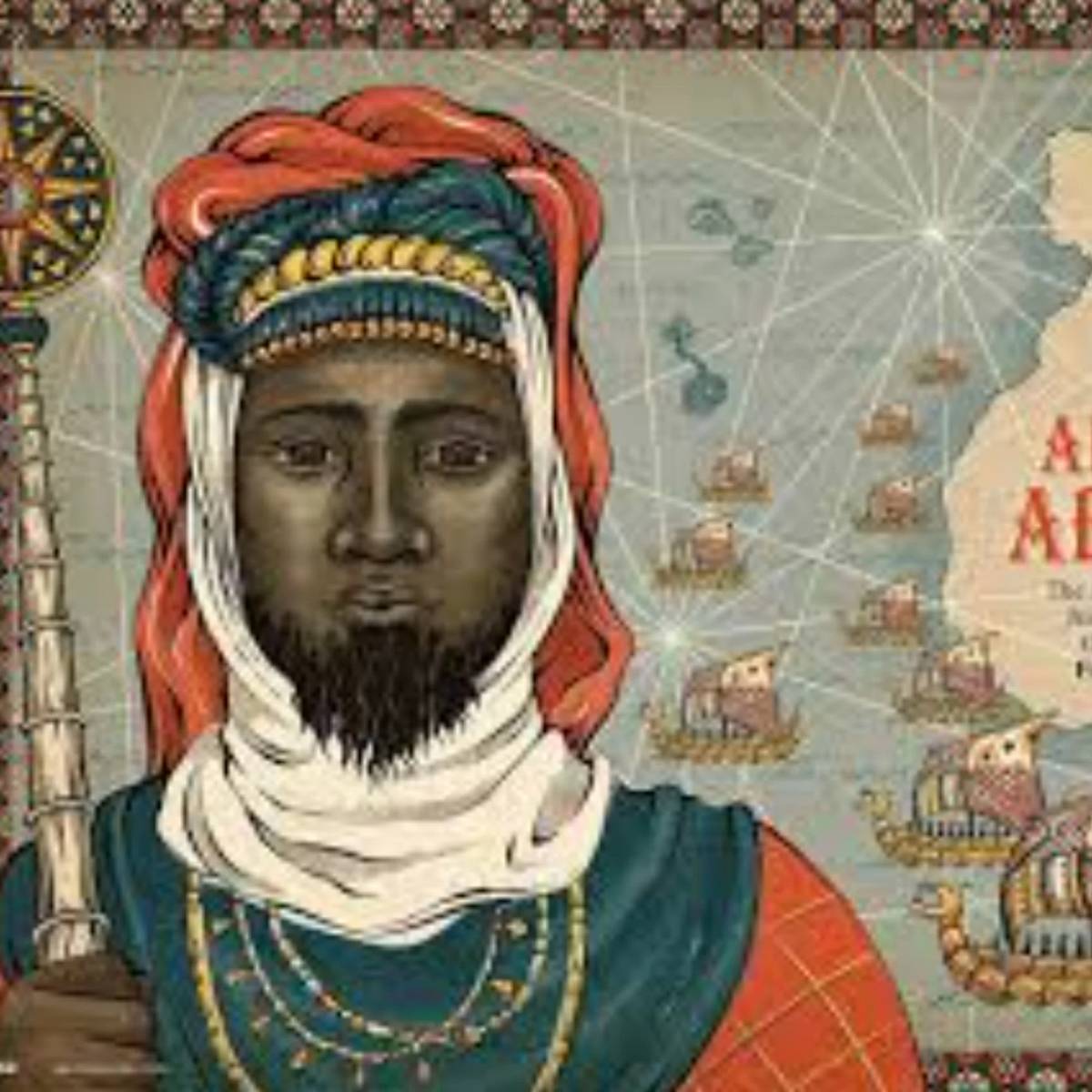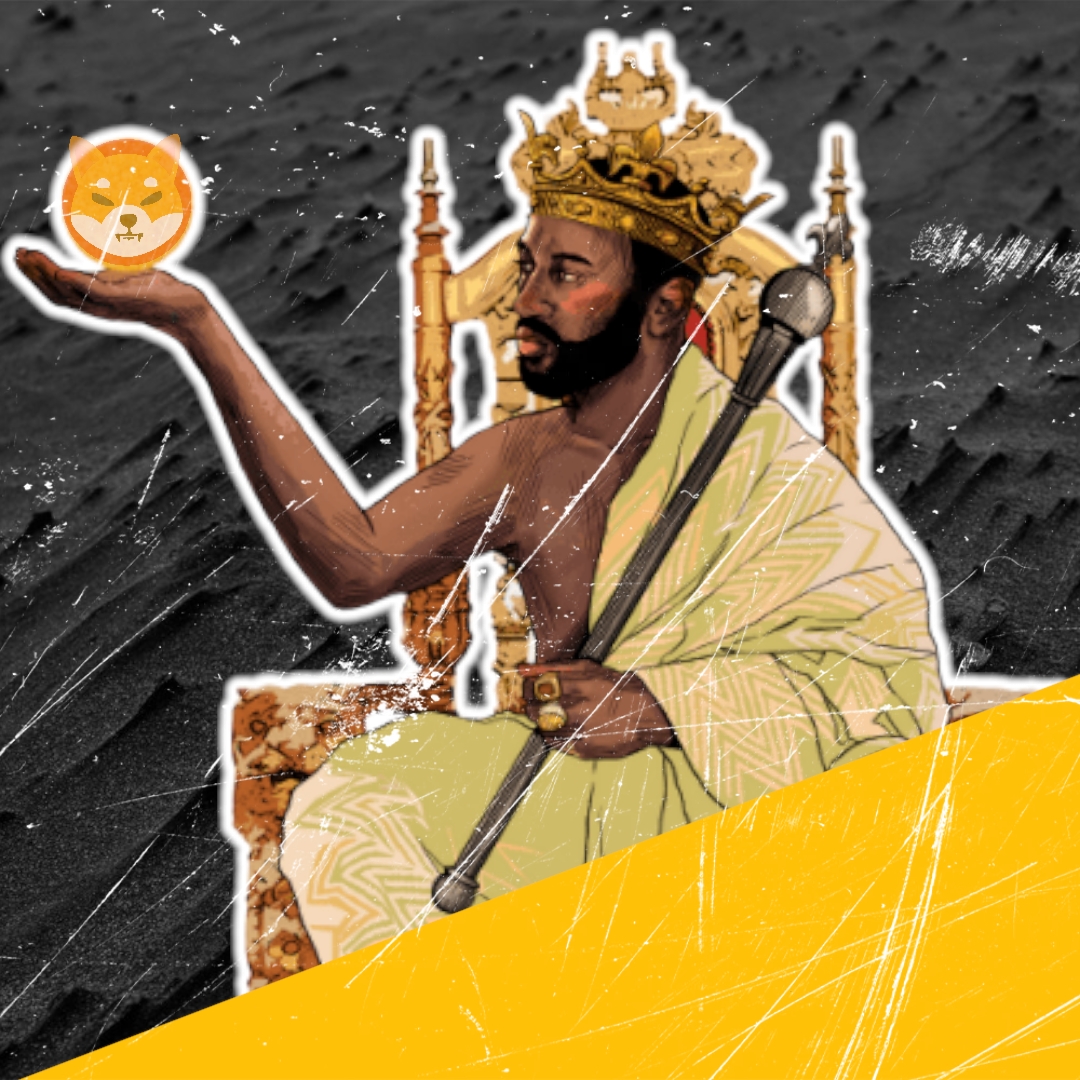Mansa Musa's Wealth: Exploring The Unfathomable Net Worth Of History's Richest Figure
Have you ever stopped to wonder, really wonder, about the kind of wealth that makes headlines today? We hear about billionaires, their fortunes, and their vast holdings. But what if I told you that, in a way, those modern fortunes pale in comparison to a figure from centuries ago? We are talking about the truly immense, almost impossible to grasp, net worth of Mansa Musa. It's a story that, you know, still captures imaginations, even today in 2024.
This isn't just about a number, though a very big number it certainly is. It's about how one person, Mansa Musa, shaped an entire empire and left a mark on history with his incredible riches. His story offers a fascinating look into the economic power of ancient West Africa, a place often overlooked in popular historical narratives. It's a bit like discovering a hidden treasure chest of historical insight, pretty much.
So, we're going to explore what made Mansa Musa's wealth so extraordinary, how he amassed it, and what its impact was, for real. We will also consider the challenges of even trying to put a modern dollar figure on such an ancient fortune. This article aims to shed light on the true scale of the net worth of Mansa Musa, a name that, arguably, should be far more widely recognized.
Table of Contents
- Mansa Musa: A Brief Biography
- The Source of His Fortune: Gold and Salt
- The Legendary Hajj: A Display of Unimaginable Wealth
- Impact on Trade and Culture: A Golden Age
- Quantifying the Unquantifiable: Estimating His Net Worth
- Mansa Musa's Legacy: More Than Just Riches
- Frequently Asked Questions About Mansa Musa's Wealth
- Conclusion: The Enduring Allure of Mansa Musa's Riches
Mansa Musa: A Brief Biography
Mansa Musa, whose full name was Musa Keita I, ruled the Mali Empire from 1312 to 1337 or 1337/1338. He was the tenth Mansa, which means "sultan," "conqueror," or "emperor," of the wealthy West African Mali Empire. His reign is often seen as the golden age of Mali, a time when the empire reached its peak in terms of size, influence, and, well, wealth. He really expanded the empire's reach, incorporating many new territories.
Before Musa, his predecessor, Abu Bakr II, reportedly went on an expedition across the Atlantic Ocean and never returned. This left the throne open for Musa, who had been Abu Bakr II's deputy. Musa's rule brought a lot of stability and prosperity to the region, allowing the empire to flourish. He was, in a way, a very capable leader, and stuff.
Mansa Musa was a devout Muslim, and his faith played a very significant role in his life and rule. His famous pilgrimage to Mecca, known as the Hajj, is perhaps the most well-documented event of his reign, and it's where much of the legend of his incredible wealth comes from. It was, frankly, an event that put Mali on the map for many outside observers, pretty much.
Personal Details & Bio Data
| Detail | Information |
|---|---|
| Full Name | Musa Keita I |
| Title | Mansa (Emperor) of the Mali Empire |
| Reign | c. 1312 – c. 1337/1338 CE |
| Empire | Mali Empire (West Africa) |
| Religion | Islam |
| Known For | His immense wealth, the legendary Hajj, and expanding the Mali Empire |
| Estimated Net Worth (Modern Equivalent) | Often described as "unfathomable" or "richer than anyone could describe," estimates range from $400 billion to $700 billion+ (highly debated and difficult to quantify) |
The Source of His Fortune: Gold and Salt
The Mali Empire, during Mansa Musa's time, controlled vast stretches of land rich in natural resources. The two most important commodities that fueled his incredible wealth were gold and salt. These weren't just valuable; they were, like, essential for trade across North Africa and the Middle East. Gold was used for coinage and luxury goods, and salt was crucial for preserving food and as a mineral supplement.
The empire had direct control over the major gold fields of Wangara, located near the Niger River. This meant that, essentially, a significant portion of the gold circulating in the Mediterranean world at the time passed through Mali. The empire also controlled the major salt mines, such as those at Taghaza, which were, in a way, just as important as the gold mines. This dual control gave Mansa Musa immense economic leverage, you know.
Trade routes, particularly the trans-Saharan trade routes, were very vital for the empire's prosperity. Caravans of camels, carrying gold, salt, and other goods, traveled across the desert, connecting Mali to bustling trade centers like Cairo and Venice. Mansa Musa, obviously, taxed this trade heavily, ensuring that a good portion of the profits flowed directly into the imperial treasury. This system, really, made his empire a powerhouse.
The Legendary Hajj: A Display of Unimaginable Wealth
Mansa Musa's pilgrimage to Mecca in 1324-1325 is the event that truly cemented his reputation as the wealthiest person in history. It wasn't just a religious journey; it was a grand procession, a spectacle of wealth that left observers stunned. Accounts from chroniclers of the time describe a caravan of epic proportions, something truly unbelievable, pretty much.
Reports vary, but many sources claim that Mansa Musa traveled with tens of thousands of people, including soldiers, courtiers, entertainers, and slaves. And, get this, each of these people, apparently, carried gold staffs. The most striking detail, however, was the sheer amount of gold he brought with him. He reportedly had hundreds of camels, each carrying hundreds of pounds of gold dust. That's a lot of gold, basically.
As the caravan passed through Cairo, Mansa Musa distributed so much gold to the poor and as gifts to officials that it actually caused a significant economic disruption. The sudden influx of gold into the Egyptian market led to a sharp decrease in its value, resulting in widespread inflation that, you know, lasted for years. This was, as a matter of fact, an unprecedented event, showing the sheer scale of his personal fortune and its direct impact on a major economy.
Impact on Trade and Culture: A Golden Age
Mansa Musa's wealth wasn't just for show or for personal spending; he used it to significantly develop his empire. After his Hajj, he brought back architects, scholars, and books from the Middle East, investing heavily in education and infrastructure. Timbuktu, in particular, became a very important center of learning and trade under his patronage. It was, in a way, a shining example of cultural advancement.
He commissioned the building of mosques, libraries, and universities, most notably the Sankore University in Timbuktu, which became a renowned center for Islamic studies. These institutions attracted scholars from across the Islamic world, making Timbuktu a hub of intellectual activity. This investment, you know, really boosted the empire's prestige and long-term development.
His pilgrimage also strengthened diplomatic ties with other Muslim states, increasing Mali's influence and opening up new trade opportunities. The empire became known for its sophistication and wealth, attracting merchants and travelers from afar. This period, arguably, represents a high point in West African history, showing how wealth, when managed well, can foster cultural and intellectual growth, and stuff.
Quantifying the Unquantifiable: Estimating His Net Worth
Trying to put a precise number on Mansa Musa's net worth in modern terms is, honestly, a very difficult task. Economic systems were completely different in the 14th century, and there's no direct equivalent for comparing wealth across such vast time spans. Modern financial metrics, you know, just don't really apply in the same way. It's like trying to compare apples to very, very golden oranges.
However, historians and economists have made attempts to contextualize his wealth. Some estimates place his fortune at over $400 billion, while others suggest it could have been significantly higher, perhaps even double that. The general consensus, though, is that he was richer than anyone could possibly describe, holding more personal wealth than any individual in recorded history. That's a pretty big statement, you know.
The challenge comes from a few factors: the lack of precise records from that era, the difficulty in valuing entire gold mines and trade routes, and the differing purchasing power of gold then versus now. It's not just about how much gold he had, but what that gold could buy and control. So, while we can't give an exact figure, the idea that his wealth was "unfathomable" really captures the truth of it, pretty much. Learn more about ancient economies on our site.
Mansa Musa's Legacy: More Than Just Riches
Mansa Musa's legacy extends far beyond his personal fortune. He is remembered as a ruler who brought stability, prosperity, and cultural flourishing to the Mali Empire. His investments in education and architecture left a lasting impact on West African civilization, contributing to the rich intellectual tradition of cities like Timbuktu. He was, in a way, a patron of knowledge and art, for real.
His Hajj, while a display of incredible wealth, also served to raise the profile of the Mali Empire on the world stage. It put West Africa in the consciousness of European and Middle Eastern cartographers and scholars, leading to increased trade and cultural exchange. This, you know, really opened up new connections for the region.
Even today, Mansa Musa remains a very compelling figure, a symbol of immense historical wealth and power. His story reminds us that centers of great wealth and influence have existed in many parts of the world throughout history, not just where we might typically expect. It's a powerful reminder of the diverse tapestry of human history, and stuff. You can also link to this page here for more insights.
Frequently Asked Questions About Mansa Musa's Wealth
What was Mansa Musa's net worth in today's money?
It's very difficult to give an exact number for Mansa Musa's net worth in modern currency. Most historians and economists describe it as "unfathomable" or "richer than anyone could describe." Estimates, however, often place it well into the hundreds of billions of US dollars, with some suggesting it could be over $400 billion or even more. The sheer scale of his gold holdings and control over trade routes makes a precise comparison nearly impossible, you know.
How did Mansa Musa get so rich?
Mansa Musa's wealth came primarily from the vast natural resources of the Mali Empire, particularly its abundant gold and salt mines. The empire controlled key gold fields in Wangara and major salt mines, and also taxed the extensive trans-Saharan trade routes. This control over essential commodities and trade networks allowed him to accumulate an incredible amount of wealth, basically.
Was Mansa Musa the richest person ever?
Many historians and economists consider Mansa Musa to be the richest person in recorded history. While direct comparisons across different historical periods are challenging due to varying economic systems, the sheer scale of his personal wealth, particularly his gold holdings, and the documented impact of his spending (like causing inflation in Cairo during his Hajj), strongly support this claim. He was, honestly, just incredibly wealthy, pretty much. For more historical context, you can check out this article on Mansa Musa on Britannica.
Conclusion: The Enduring Allure of Mansa Musa's Riches
The story of Mansa Musa's net worth remains a very compelling subject, even centuries after his reign. It challenges our modern understanding of wealth and shows us the incredible economic power that existed in ancient African empires. His fortune, derived from the gold and salt of Mali, was so vast that it literally shifted economies and left a lasting impression on the world. It's a story that, you know, really makes you think about history differently.
While we can't pin down an exact dollar figure, the accounts of his legendary Hajj and the widespread impact of his gold distribution paint a clear picture of a man whose riches were truly beyond compare. He wasn't just wealthy; he used his wealth to build, to educate, and to connect his empire with the wider world. His legacy, obviously, is far more than just a number.
So, the next time you hear about the world's richest people, take a moment to remember Mansa Musa. His story serves as a powerful reminder of the incredible, almost mythical, fortunes that have existed throughout human history. It's a fascinating piece of our shared past, and stuff, that continues to spark curiosity and wonder. What other historical figures, you might ask, held such immense, almost unbelievable, power?

Unlocking the Riches: Mansa Musa Staggering Net Worth

Mansa Musa Net Worth

Mansa Musa Net Worth